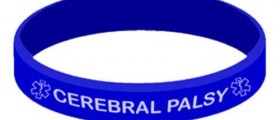
Slurring of words is medically referred to as dysarthria. This condition stems from problems with the muscles making one unable to pronounce words with ease or produce them at all. This condition can lead to numerous problems in a person's life, regarding his/her lifestyle and overall achievements in life.
Thus, if you happen to suffer from this condition or know someone who does, the following lines will be of assistance, offering basic information about slurred speech and possible treatments for it.
What is Slurred Speech?
The main causes behind this condition are many and usually involve a brain or muscle disorder which makes it difficult for the muscles of the mouth to be controlled by the affected person. Also, the condition can affect the tongue, the larynx or the vocal cords.
Hence, the affected muscles may be completely or partially paralyzed, making proper speech impossible.
In cases of brain damage, dysarthria is caused by a brain tumor, dementia, stroke or traumatic brain injury. Additionally, a neck or face trauma or a surgery related to the treatment of these conditions, involving a total or a partial removal of the voice box, all are cases which can potentially lead to the development of slurred speech.
Sometimes, this condition can be related to specific diseases which affect the sufferer. These can be cerebral palsy, MS, muscular dystrophy, myasthenia gravis and Parkinson's disease. Alternatively, some other, less common causes of slurred speech are excessive alcohol consumption and alcohol intoxication which accompanies this process, wearing dentures which do not fit correctly and taking some medications which affect the central nervous system, being narcotics, phenytoin or carbamazepine.
Due to the possible complexity of this condition, health experts usually need to perform many tests during the process of diagnosis. The physician, for example, may need to perform laryngoscopy, inserting a device inside the patient's throat in order to obtain visual data of the area and see the causes behind the slurred speech.
Additionally, blood tests, MRI or CAT scans, electromyograms or some other forms of diagnostic examinations may need to be done on the patient in order for this condition to be properly diagnosed or ruled out.
Once slurred speech is diagnosed medically, adequate treatment commences. The patient is commonly sent to a speech and language specialist in order to be tested and treated. There, the patient may learn many skills which will allow him/her to overcome his/her speaking problems. In some cases, these skills may involve learning how to chew properly or swallow in the right manner. Even avoiding conversation when fatigue is felt may be advisable. Alternatively, the patients may need to repeat certain sounds over and over again in order to learn how to master them properly, without slurring.
Also, sometimes, slurred speech can prove to be quite unnerving for the speaker, especially when he/she cannot do anything about it. Then, these people, through therapy, are taught how to control their frustration and manage to keep them away, focusing on solving the speech problems they are suffering frominstead.
When all else fails and the recovery of voice or speaking skills is not possible, patients are taught how to use the computer for expressing themselves. Flip cards or special word-forming computer software may be used for these purposes as well. Surgery is considered to be the lastresort.
Symptoms of Slurred Speech
Simply put, people suffering from dysarthria have problems related to their speech and the process of producing sounds and forming words from them. The rhythm of the speech may be altered in patients suffering from this condition and they might change the speed or the pronunciation of the sounds theyproduce.
Thereby, they might sound as if they are mumbling or speak softly, even whispering at times. Also, the sounds they produce may appear to be nasalized or, perhaps best described as stuffy, hoarse, excessively strained or breathy.
Taking into consideration that this problem is connected to the muscles, the affected individuals may have difficulties swallowing or chewing as well as moving their lips or their tongue and jaw.
Bear in mind that slurred speech itself can be a symptoms of some serious health complications, especially if it occurs hand-in-hand with drowsiness, memory issues, mood swings, loss of consciousness or a change in the level of consciousness, lack of muscle coordination, seizures, strong and serious headaches and vision difficulties like pain in the eyes and complete or partial loss of vision.
Also, people who suffer from slurred speech may also be prone to drooling, muscle spasms and muscle weakness.
All in all, speech therapy is usually necessary for helping people suffering from slurred speech. This is a condition which usually affects the muscles involved in the speaking process, impairing them and triggering abnormal production of verbal language, being arhythmical, too fast or too slow or resembling mumbling.

















Your thoughts on this
Loading...